Thursday 17 May 2018 4:47pm
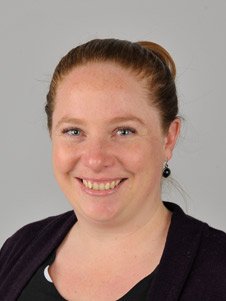
Dr Kirsty Danielson is one of several University of Otago researchers who have just been awarded almost $1.5 million in Health Research Council funding.
A University of Otago researcher focused on the earlier detection of cancer has just secured her first significant grant from the Health Research Council, valued at $249,984, for her novel proposal for diagnosing bowel cancer.
Lecturer in the Department of Surgery and Anaesthesia at Otago’s Wellington campus, Dr Kirsty Danielson, will investigate if the presence of certain types of molecules in the blood could be a reliable bio-marker for detecting bowel cancer and even predicting a person’s response to chemotherapy.
New Zealand has one of the highest rates of bowel cancer in the world, resulting in about 1,200 deaths annually. Current screening strategies are invasive, have a high resource burden, or lack of sensitivity required to detect cancer at an early stage, Dr Danielson says.
“While the current roll-out of the national bowel screening programme is a positive step, the method used still has limited sensitivity for detecting early cancers and will add pressure on hospitals to perform more colonoscopies,” she says.
“There’s an urgent need for novel, sensitive and minimally-invasive diagnostic strategies for early-stage diagnosis.”
"I am glad that this diverse range of impactful research has been funded to address important issues in human health and wellbeing."
Dr Danielson is one of several University of Otago researchers who have been awarded almost $1.5 million in Health Research Council funding.
The council has announced today that six University of Otago researchers were successful, making up half of the 12 Emerging Research First Grants awarded.
The fund is dedicated to people who are beginning their research career and the Otago researchers have been awarded $1,497,138 million of the total pool of $2,850,808.
University of Otago Deputy Vice-Chancellor (Research and Enterprise) Professor Richard Blaikie is delighted to see support for the country’s future research leaders.
“I am glad that this diverse range of impactful research has been funded to address important issues in human health and wellbeing,” Professor Blaikie says.
Other successful researchers are:
Dr Rachel Purcell
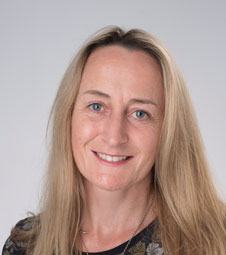
Surgery, Orthopaedics, Anaesthesia & Radiology, Christchurch campus
The gut microbiome in bowel cancer
$249,477
Dr Purcell and her colleagues were the first in the world to show that differences in the gut microbiome were linked to different genetic types of bowel cancer.
Her emerging researcher grant will extend this work by subtyping colorectal tumours from the Cancer Society Tissue Bank and studying their microbiomes, with the ultimate goal of developing earlier detection methods and improved treatments for colorectal cancer.
Dr Sarah Appleby
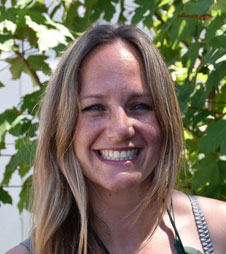
Medicine, Christchurch campus
Role of myoregulin in cardiovascular disease
$249,265
Dr Appleby will study a protein called myoregulin, which is produced by what was previously thought to be “junk DNA”. Myoregulin is thought to play a key role in controlling calcium levels in muscle cells which is extremely important for normal heart functioning, and is altered in a heart attack.
Dr Appleby will measure the levels of myoregulin in patients presenting to the emergency department with chest pain to determine whether it has potential as a test to diagnose those having a heart attack.
Dr Aaron Stevens
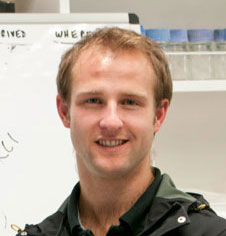
Pathology
Christchurch campus
Inflammation and ageing
$249,137
Dr Stevens will study how chemicals produced by bacteria affect our bodies’ immune response to pneumonia.
His study will focus specifically on the impact of chemicals associated with inflammation and infection, as well as understanding how the process differs as we age.
Dr Kate Thomas
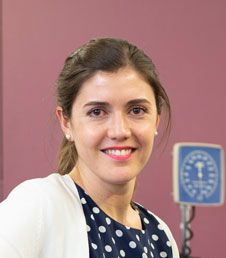
Dunedin School of Medicine
Optimisation of pre-operative cardiovascular fitness: The heat vs HIIT study
$249,615
Patients awaiting hip or knee joint replacement surgery are often limited in their ability to exercise due to pain and reduced mobility.
This randomised controlled trial aims to test and compare two novel interventions prior to surgery – heat therapy and upper-limb high-intensity interval exercise – to enhance fitness, cardiovascular health and quality of life, thereby improving surgical outcomes.
Dr Rebecca Dyson
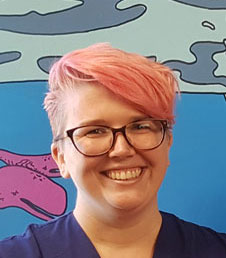
Paediatrics and Child Health, Wellington campus
Omega-3 for improvement of cardiometabolic outcomes following preterm birth
$249,660
About seven per cent of New Zealand’s babies are born prematurely and as these children grow up, they face an increased risk of cardiovascular disease as adults. Omega 3 is essential for normal cardiovascular tissue development and levels of omega 3 are depleted in pre-term babies.
Dr Dyson will investigate whether application of omega-3 can help reduce cardiovascular dysfunction.
